Brazilian coffee beans are a must-try for any coffee lover. Known for their smooth, well-balanced flavor, they often have sweet notes and a hint of nuttiness. Whether you enjoy them as espresso or brewed, these beans will definitely elevate your coffee experience.
Brazillian Coffee Beans
Experience the rich flavors and vibrant aromas that only Brazilian coffee beans can offer
Product List
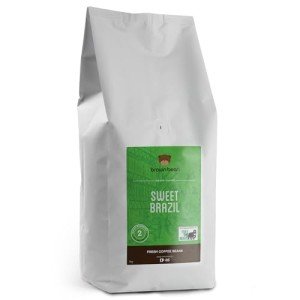
Sweet Brazil Light Roast Coffee
Brown Bear
Product Review Score
4.51 out of 5 stars
20 reviews$33.89

Brazilian Yellow Bourbon Coffee 1kg
Coffee Masters
Product Review Score
4.15 out of 5 stars
161 reviews$35.25 $33.89
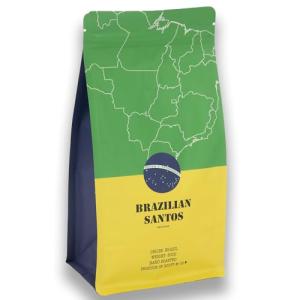
Brazilian Santos Light Roast 500g
Scott&Co.
Product Review Score
4.45 out of 5 stars
188 reviews$20.33

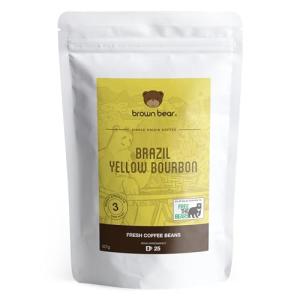
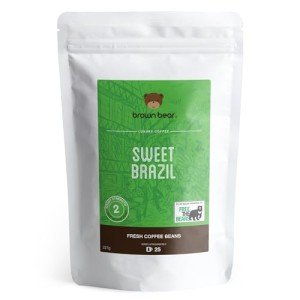
Sweet Brazil Light Roast Coffee
Brown Bear
Product Review Score
4.66 out of 5 stars
226 reviews$10.84

Morrisons Brazilian Coffee Beans 227g
Morrisons
Product Review Score
4.13 out of 5 stars
12 reviews$16.94
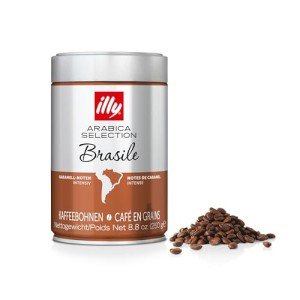
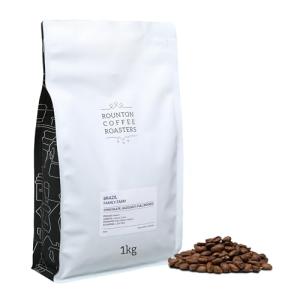
Brazilian Arabica Coffee - 1kg
Rounton Coffee
Product Review Score
4.13 out of 5 stars
127 reviews$44.08
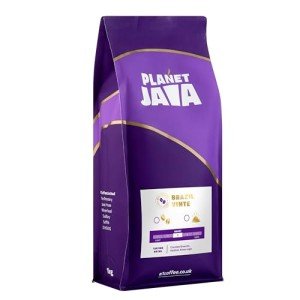
Brazil Vinte Arabica Beans 1kg
Planet Java
Product Review Score
4.21 out of 5 stars
128 reviews$27.11
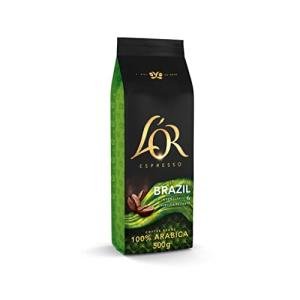
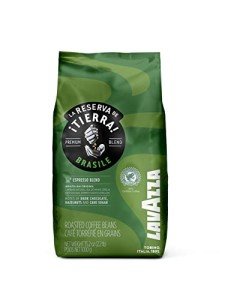
Lavazza Tierra Brasile Coffee 1kg
Lavazza
Product Review Score
4.33 out of 5 stars
178 reviews$30.50
Brazil is synonymous with coffee. As the largest coffee producer in the world, this South American country plays a pivotal role in shaping the global coffee landscape. Brazilian coffee beans are renowned for their distinctive taste and have become a staple in many coffee lovers' routines. In this article, we delve into the nuances of Brazilian coffee beans, their production, unique characteristics, and their place in the coffee market.
Overview of Brazilian Coffee Production
Brazil’s coffee cultivation spans back over 300 years, and today, it accounts for about 30% of the world’s total coffee production. The country’s vast and varied geography allows for the cultivation of different coffee varieties, primarily Arabica and Robusta. The primary coffee-producing regions—such as Minas Gerais, São Paulo, and Espírito Santo—contribute distinct flavors and aromas due to differing climates, altitudes, and soil types.
Coffee Production by Region
| Region | Main Varieties | Characteristics |
|---|---|---|
| Minas Gerais | Arabica | Chocolate, nutty flavors with mild acidity. |
| São Paulo | Arabica | Sweet and fruity with a smooth finish. |
| Espírito Santo | Arabica, Robusta | Rich body, balanced acidity, often used in espresso. |
| Bahia | Arabica | Bright acidity with floral notes. |
| Rondônia | Robusta | Strong, bold flavor, earthy notes. |
Flavor Profile of Brazilian Coffee Beans
Brazilian coffee is often characterized by its low acidity and sweetness, offering a flavor profile that ranges from mild and nutty to chocolatey and even fruity. This makes it an excellent choice for espresso blends, as it contributes a rich body and smooth finish. Below is a detailed breakdown of the flavor notes commonly found in Brazilian coffee:
- Nutty: Many Brazilian coffees feature hazelnut or almond notes, providing a comforting, familiar taste.
- Chocolate: It is not uncommon to find beans with deep chocolate undertones, making them particularly appealing for those with a sweet tooth.
- Fruity: Some regions produce coffee with bright fruit flavors, like berries and citrus, adding complexity to the cup.
- Caramel: A sweet, syrupy finish often accompanies the chocolate and nutty notes.
- Round Body: Brazilian coffees tend to have a full yet smooth body, making them enjoyable for those who prefer a robust cup without overwhelming acidity.
The Processing Methods
The processing method has a profound influence on the flavor profile of coffee beans. In Brazil, there are two primary methods of processing: natural and washed.
-
Natural (Dry) Processing: Coffee cherries are spread out in the sun to dry after harvesting. This method allows the fruit to ferment and enhances fruity flavors, resulting in a bold and sweeter profile.
-
Washed (Wet) Processing: In this method, the coffee cherries are depulped and fermented to remove the mucilage before drying. This results in a cleaner and brighter flavor, highlighting the bean's inherent qualities.
Comparison of Processing Methods
| Processing Method | Flavor Profile | Popularity in Brazil |
|---|---|---|
| Natural Processing | Fruity, bold, sweet | Common in the northeast region |
| Washed Processing | Clean, bright, acidic | Dominant in Minas Gerais and São Paulo |
Brewing Techniques That Enhance Brazilian Coffee
To fully appreciate the unique flavors of Brazilian coffee, it is essential to select the right brewing method. Different techniques can amplify specific notes within the coffee. Here’s a list of popular brewing methods that work well with Brazilian beans:
- Espresso Machine: The espresso method is excellent for highlighting nutty and chocolate flavors, making Brazilian coffee a popular choice for cafe-style drinks.
- Pour-Over: This method allows for better control over brewing time and water temperature, bringing out the coffee’s sweetness and nuanced flavors.
- French Press: The immersion brewing technique gives fuller body and highlights deeper chocolate notes, creating a rich drinking experience.
- Cold Brew: Ideal for highlighting the smooth, sweet characteristics of Brazilian coffee, especially during warmer months.
The Global Market & Brazilian Coffee
Brazilian coffee is not only essential to the domestic market; its influence extends globally. The bulk of Brazilian coffee is exported, making it a key player in international trade.
Key Export Markets
| Country | Import Quantity (Metric Tons) | Type of Coffee Preferred |
|---|---|---|
| United States | 750k | Arabica |
| Germany | 300k | Robusta and Arabica |
| Italy | 250k | Espresso blends |
| Japan | 100k | Specialty coffees |
FAQs About Brazilian Coffee
1. What is the best way to brew Brazilian coffee?
Brazilian coffee works well with various brewing methods; however, espresso and pour-over techniques are particularly popular for showcasing its unique flavor profiles.
2. Are Brazilian coffee beans suitable for espresso?
Yes, Brazilian coffee beans are widely used in espresso blends due to their rich body and smooth finish, making them an excellent base for espresso drinks.
3. What distinguishes Brazilian coffee from other origins?
Brazilian coffee is known for its low acidity, sweetness, nutty and chocolate flavors, and a well-rounded mouthfeel, which sets it apart from other coffee-producing countries.
4. How can I tell if the coffee is from Brazil?
Look for labels indicating the coffee’s origin; often Brazilian coffee will have names like "Minas Gerais" or "São Paulo." Additionally, expect flavor notes such as chocolate, nuts, and a low acidity level.
Brazilian coffee beans are a fundamental part of the coffee narrative, showcasing a balance of flavors and a variety of processing methods. They play a crucial role in both domestic consumption and global export. The rich history, diverse regions, and meticulous production methods contribute to the unique identity of Brazilian coffee. For coffee enthusiasts and casual drinkers alike, experiencing a cup of Brazilian coffee is not merely a daily ritual but a journey through the lush landscapes of Brazil—a celebration of nature’s bounty, skill, and culture.